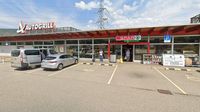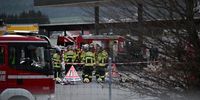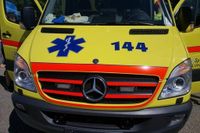On Wednesday afternoon, March 19, 2025, a medical emergency unfolded on the A5 highway as several passengers on a bus manifested alarming symptoms reminiscent of poisoning. The incident occurred just before 4:20 PM, prompting immediate action from the Bern cantonal police after they received distress calls about the situation.
The bus, on a route from Solothurn towards Biel, made an unexpected stop at the Pieterlen rest stop, which soon became the focal point of urgent medical response. Emergency services swiftly mobilized, including five different ambulance teams. A total of 18 individuals were transported to the hospital for further evaluation, while 29 other passengers received medical assessments on-site.
Initially, there were grave concerns about the possibility of a radiological event. To safeguard public health, the rest area was cordoned off as a precaution. As police reports noted, "Due to initial information suggesting a possible radiological event, the rest stop was closed, and the Biel professional fire brigade and the LePiMe fire brigade were called in." With police and fire personnel on the scene wearing protective gear, thorough examinations were conducted on the bus.
After rigorous testing and evaluations, authorities quickly ruled out the possibility of a radiological threat. Subsequently, investigations indicated that the phenomenon leading to the passengers' distress was far less sinister but equally concerning. The symptoms were likely associated with a viral infection. In the hospital, the Norovirus was specifically identified in two of the affected travelers.
As the hours unfolded, the state of emergency began to ease, allowing for a gradual return to normalcy at the Pieterlen rest stop. The closure of the rest stop, initiated to prioritize public safety, was eventually lifted around 10:00 PM on the same day, marking the end of an incident that had caused significant alarm but ultimately ended without severe distress to the wider population.
While the situation may have initially incited fear among passengers and responders alike, the quick actions of the regional emergency teams prevented any potential escalation. Local health authorities were informed, enabling them to monitor the situation with the unmasking of the Norovirus as the culprit. This incident emphasizes the importance of immediate and coordinated responses in medical emergencies, contributing to public safety and health.
Residents and travelers on the A5 were thankfully unharmed during the ordeal, but the event served as a potent reminder of the swift and dedicated efforts of emergency services in times of crisis.
The Bern cantonal police, who kept the community updated throughout, expressed gratitude for the cooperation of various emergency teams involved. They released statements highlighting the necessity of vigilance in similar situations, underscoring that prompt reporting can greatly affect outcomes during emergencies.
In retrospect, the March 19 incident reflects the unpredictable nature of public health crises, reinforcing the need for thorough preparedness and rapid response from health and safety officials. Every passenger's well-being and safety seemed to affirm this approach as the authorities successfully navigated through a potentially dangerous situation rendering valuable lessons for future scenarios.






